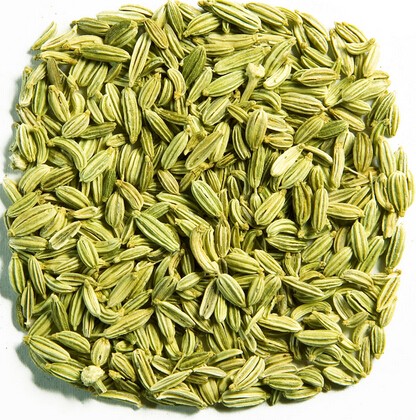Indigestion is a common condition that can cause discomfort and disrupt your daily life. This is a common condition that can cause symptoms such as abdominal pain, bloating, and heartburn. It can affect men and women of all ages. Fortunately, there are several things you can do to get rid of indigestion and prevent it from occurring in the future. This article will explore 10 natural remedies to get rid of indigestion and prevent it from returning.
What Is Indigestion?
Indigestion, also known as dyspepsia, refers to a range of symptoms that occur in the upper abdomen during or after eating. The symptoms usually include a burning sensation, discomfort, and bloating. Various factors, including lifestyle choices, diet, underlying medical conditions, and stress, can cause indigestion.
Indigestion can manifest with various symptoms, varying from person to person. Some common symptoms include:
- Abdominal pain or discomfort
- Burning sensation in the upper abdomen
- Feeling overly full or bloated
- Nausea or vomiting
- Excessive burping or flatulence
- Acidic taste in the mouth
- Heartburn
- Regurgitation of food or acid
- Loss of appetite

Common Causes of Indigestion
Here are some of the most common causes of indigestion:
- Overeating: Consuming large portions of food can put pressure on the stomach and lead to indigestion. Eating too quickly or not chewing food properly can also contribute to the problem.
- Spicy, fatty, or greasy foods: These foods can trigger indigestion in many individuals. They can relax the lower esophageal sphincter (LES), allowing stomach acid to flow back into the esophagus and cause discomfort.
- Acid reflux: Gastroesophageal reflux disease (GERD) occurs when stomach acid flows back into the esophagus, causing heartburn and indigestion.
- Certain medications: Some medications, such as nonsteroidal anti-inflammatory drugs (NSAIDs), antibiotics, and certain pain relievers, can irritate the stomach lining and cause indigestion as a side effect.
- Stress and anxiety: Emotional stress or anxiety can affect the digestive system, leading to indigestion.
- Helicobacter pylori (H. pylori) infection: This bacterial infection can cause chronic inflammation of the stomach lining, leading to indigestion, stomach ulcers, and other gastrointestinal problems.
- Smoking and excessive alcohol consumption: Both smoking and excessive alcohol intake can irritate the stomach lining and increase the production of stomach acid.
- Eating too close to bedtime: Lying down shortly after eating can allow stomach acid to flow back into the esophagus, causing indigestion and acid reflux.
- Underlying medical conditions: Indigestion can be a symptom of certain medical conditions, such as gastritis, gallstones, pancreatitis, or peptic ulcers.
10 Best Home Remedies to Get Rid of Indigestion
1. Fennel Seeds

Fennel seeds are excellent for treating digestive conditions such as gas, acid, and reflux in the throat. It contains Anethole, a compound that can help suppress your gastrointestinal tract spasms.
It also contains minerals and vitamins such as iron, potassium, C, E, and E [4]. This will help neutralize what spicy food has produced and reduce nausea so that you can feel better.
- Add 1/2 teaspoon of fennel seeds to a glass of hot water.
- Wait for 5-10 minutes and drink the solution.
- You can also chew a spoonful of fennel seeds slowly after your meals.
- Do this about twice a day. This will also give you a fresh breath.
- Alternatively, you can roast and grind the fennel seeds.
- Place the ground fennel seeds in a glass of boiling water and chew them slowly.
- Another option is to mix one teaspoon of fennel seeds, three mint leaves, and 1/2 teaspoon of ginger with hot water. Wait for 15 minutes and drink one cup 2 – 3 times daily.
2. Peppermint Tea

Peppermint tea can help relieve digestive system conditions such as vomiting, stomach cramps, IBS, indigestion, and nausea.
Peppermint flavonoids, phenolic acids, and menthol can help relax the digestive tract muscles. This can help you digest the food that you eat effectively.[5]
Peppermint has antibacterial and antifungal properties, which can prevent stomach infections. You can also use Peppermint tea to eliminate nausea, cramping, and flatulence.[6]
In addition, peppermint tea is excellent, which can relieve the burning sensation that accompanies reflux and makes you feel better.
- Prepare the peppermint tea bag by placing it in warm water for about 3 – 5 minutes. Take out the tea bag and wait for the water to cool. Drink the tea by sipping it slowly.
- Alternatively, add 2-3 tablespoons of peppermint leaves in hot water and wait 10-15 minutes to let it cool. Drink it during or after a meal.
- You can also add some essential oils such as Ginger oil, Lavender oil, or Peppermint oil to enhance its effect.
3. Ginger

In Chinese medicine, ginger can treat many gastrointestinal problems, such as indigestion, belching, nausea, and bloating.[7] It can also help relieve the trapped gas in your chest.
You can take ginger when you have indigestion because of overeating. It can help food move faster away from your stomach and into your intestines to make them digested easier. It also has anti-emetic properties that can be used to treat motion sickness.[8]
- Grate fresh ginger and place it in a glass of warm water.
- Add a little bit of lemon juice.
- Add a few drops of honey to make it taste better.
- Drink it so that you can feel better.
- You can also chew the dried ginger or include ginger in your diet.
4. Carom Seeds
Carrom is a plant from Egypt. In India, it was used to eliminate indigestion and many other stomach problems. [9].
The Carom seed oil contains thymol with stomachic, carminative and antispasmodic properties. It contains many vitamins, antioxidants, and minerals, which can help heal many gastrointestinal problems.[10].
- Grind Carom seeds and freshly grated ginger.
- Place on a cup of warm water and drink.
- You can do this twice a day.
- You can also chew the carom seeds after each meal.
5. Apple Cider Vinegar

Apple Cider Vinegar is a vinegar made from apple juice and acetic acid. Aside from being good for the skin and hair, it can also be helpful for indigestion.
The acetic acid in apple cider vinegar can help prevent bacteria help digest foods and relieve acid reflux. [11]
It can also help remove trapped gas in the stomach. In addition, it can also help get rid of flu, sores, and diabetes.[12]
- Add a tablespoon of apple cider vinegar to one cup of warm water.
- Add a little bit of raw honey.
- Drink a cup of water about three or four times a day.
- This can help relieve indigestion.
- You can also mix 1-2 teaspoon ACV with one glass of warm water and drink it before meals.
6. Chamomile
Chamomile tea is well-known for its calming effects on the body, including the digestive system. It has anti-inflammatory properties that can help soothe the lining of the stomach and reduce indigestion symptoms.
Sipping on a warm cup of chamomile tea after meals can promote relaxation, relieve bloating, and alleviate stomach discomfort. In addition, chamomile tea is also known to have mild sedative effects, which can help with stress-related indigestion.
- Sip on a warm cup of chamomile tea to calm the digestive system and reduce inflammation.
- Steep a chamomile tea bag in hot water for 5-10 minutes.
- Drink the tea slowly to ease indigestion symptoms.
7. Baking Soda
Baking soda, or sodium bicarbonate, is a natural antacid that can help neutralize stomach acid. In addition, it can provide relief from indigestion symptoms such as heartburn and acid reflux. When mixed with water, baking soda creates carbon dioxide, which can help alleviate bloating and belching.
However, it’s important to use baking soda in moderation and under the guidance of a healthcare professional. Because excessive use can disrupt the natural pH balance in the stomach.
- Mix a teaspoon of baking soda in a glass of water and drink it to neutralize stomach acid.
- Stir the mixture well to ensure the baking soda dissolves completely.
- Consume the mixture to alleviate heartburn and acid reflux.
8. Aloe Vera Juice
Aloe vera juice, derived from the inner gel of the aloe vera plant, has soothing properties that can benefit the digestive system. It helps reduce inflammation in the gastrointestinal tract and promotes healing of the stomach lining.
Drinking a small amount of pure aloe vera juice before meals can improve digestion, and reduce symptoms of indigestion. It’s important to choose a high-quality, pure aloe vera juice without added sugars or artificial ingredients.
- Drink a small amount of pure aloe vera juice before meals to soothe the digestive system.
- Start with a teaspoon of aloe vera juice and gradually increase the amount if tolerated well.
- Aloe vera juice can help reduce discomfort and improve digestion.
9. Cumin Seeds
Cumin seeds have been used in traditional medicine to aid digestion and relieve indigestion symptoms. They contain compounds that have carminative and anti-inflammatory properties. This can help reduce bloating, gas, and stomach discomfort.
- Chew on a teaspoon of cumin seeds or brew cumin tea to relieve indigestion symptoms.
- Alternatively, steep 1-2 teaspoons of cumin seeds in hot water for 10 minutes to make cumin tea.
- Strain the seeds and drink the tea to aid digestion and reduce discomfort.
10. Pay Attention to Your Diet

Diet adjustment is a very effective way to treat indigestion. Instead of eating the usual food products, you should try replacing them with healthy ones.
- Instead of drinking solid food, you should eat food products that are mild and soft such as soup, noodles, and porridge.
- Avoid eating fatty foods such as ice cream, butter, red meat, cheese, and fried foods. These foods may worsen your diarrhea or constipation,
- Avoid eating spicy foods such as tomatoes, citrus fruits, spices, and carbonated drinks.
- If you have stomach pain after drinking alcohol, you can brew ginger tea to remove the discomfort.
- Avoid caffeine and excess alcohol; they can cause stomach upset and lead to vomiting.
- Avoid dairy products if you suffer from lactose intolerance. You can use yogurt or quark cheese instead.
- You can also drink mint or chamomile tea; they can effectively alleviate indigestion.
- Eat more vegetables and fruits such as pears, avocados, apples, and bananas. These fruits are rich in soluble fiber, which can help clean your gut and remove diarrhea symptoms.
How to Prevent Indigestion in the Future?
Here are practical tips and lifestyle changes to prevent indigestion in the future.
1. Eat Mindfully
One of the primary causes of indigestion is overeating or eating too quickly. Practice mindful eating by taking the time to chew your food thoroughly and savor each bite. Eating slowly allows your body to properly digest food, reducing the likelihood of indigestion.
2. Maintain a Healthy Weight
Excess weight can put pressure on the stomach, leading to indigestion. By maintaining a healthy weight through a balanced diet and regular exercise, you can reduce the risk of indigestion and promote good digestive health.
3. Avoid Trigger Foods
Certain foods and beverages are known to trigger indigestion in some individuals. Common culprits include fatty or greasy foods, spicy foods, caffeine, alcohol, and carbonated drinks. Identify your personal trigger foods and limit or avoid them to prevent indigestion.
4. Eat Smaller, Frequent Meals
Instead of consuming large meals, opt for smaller, more frequent meals throughout the day. This approach can prevent overloading the digestive system and help maintain a steady release of digestive enzymes, reducing the likelihood of indigestion.
5. Stay Hydrated
Adequate hydration is essential for proper digestion. Drink plenty of water throughout the day to promote the efficient breakdown of food and prevent indigestion. Limiting the intake of sugary beverages can also help maintain optimal digestive function.
6. Manage Stress
Stress can have a significant impact on digestion and contribute to indigestion. Engage in stress-reducing activities such as exercise, meditation, or deep breathing exercises to promote a healthy digestive system.
7. Quit Smoking
Smoking has been linked to various digestive disorders, including indigestion. Quitting smoking not only improves your overall health but also reduces the risk of indigestion and other gastrointestinal issues.
8. Avoid Tight Clothing
Wearing tight clothing, especially around the waistline, can put pressure on the stomach and lead to indigestion. Opt for loose-fitting, comfortable clothing to allow for proper digestion and prevent discomfort.
9. Exercise Regularly
Regular physical activity promotes healthy digestion by increasing blood flow to the digestive organs and stimulating bowel movements. Aim for at least 30 minutes of moderate-intensity exercise most days of the week to support optimal digestive function.
How Long Does Indigestion Last?
Indigestion due to excessive drinking or eating bad food usually lasts for a short time. In most cases, the symptoms will disappear within 1-2 hours.
Indigestion caused by Obesity usually has a longer duration. In addition, the digestive function of elderly patients or pregnant is relatively weak. Indigestion usually lasts for 3-4 hours.
Gastric cancer, GRD, peptic ulcers, and other stomach disorders can cause severe indigestion. The patients may continue to suffer from indigestion for a long time. You need to consult your doctor immediately.
When to Seek Medical Help?
Most cases of indigestion can be managed with lifestyle changes and home remedies. However, if you experience severe or persistent symptoms, it is advisable to seek medical attention. Consult a healthcare professional if:
- Indigestion symptoms worsen or become more frequent
- You experience unexplained weight loss
- You have difficulty swallowing
- You notice blood in vomit or stool
- You have persistent abdominal pain
- You have a family history of gastrointestinal diseases







I’ve recently tried peppermint tea. It seems to be working pretty well.
*It may sound weird but i have found a hot shower somehow helps. I have no idea why but it does for me. Otherwise real peppermint tea and ginger help calm things down.I am gonna try apple cider vinegar tonight.